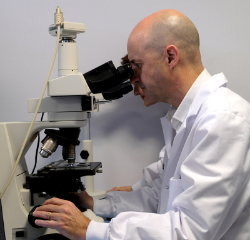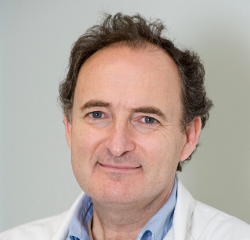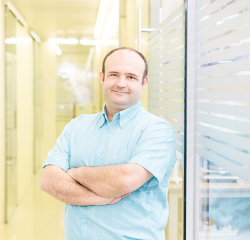3 Catalan Covid-19 vaccines
<p>A few days ago, the 19 research projects in the BioRegion awarded €4 million from the Catalan Ministry of Health to research the pandemic, with technical support from Biocat, were announced. Of these projects, 3 are researching potential vaccines for the SARS-CoV-2 virus. Let’s look at the preventive strategies they propose.</p>

The Catalan Ministry of Health has earmarked €4 million to fund 19 research projects at IRISCAT centers to prevent and treat the Covid-19 disease, chosen through an emergency call promoted by the Department of Research and Innovation (DGRIS), with collaboration from Biocat and the Agency for Health Quality and Assessment of Catalonia (AQuAS). Plus, Biocat will provide technical support for the projects.
3 of these projects are researching potential vaccines for the SARS-CoV-2 virus, which is one of the best ways to combat infectious diseases. In this post, we’ll take a closer look at these 3 research projects.
Tuberculosis vaccine, now for Covid-19
Healthcare professionals, as a group, have the highest risk of being infected with the novel coronavirus. The team led by Pere-Joan Cardona at the Institute for Health Science Research Germans Trias i Pujol (IGTP) with collaboration from the Foundation University Institute for Primary Health Care Research Jordi Gol i Gurina (IDIAPJGol) has launched a clinical trial using the RUTI tuberculosis vaccine to boost the immune system of healthcare professionals at  risk of being infected with SARS-CoV-2.
risk of being infected with SARS-CoV-2.
The study seeks to boost the innate immunity of healthcare professionals to prevent any possible complications from SARS-CoV-2 infection. It will use the RUTI vaccine, which is being developed to treat tuberculosis and made from fragments of the bacteria that causes this disease. This vaccine is being developed by Catalan company Archivel Farma based on a discovery by Dr. Pere-Joan Cardona, of the Institute for Health Science Research Germans Trias i Pujol (IGTP), and is currently in very advanced clinical trials.
The clinical trial will be done on 300 healthcare professionals that have tested negative for SARS-CoV-2 and are at high risk of catching the virus. It will last approximately 6 months.
“With this vaccine, we hope to boost the innate immunity of professionals who deal with patients and don’t have any other type of protection. Awaiting a more specific treatment, we think this is a good place to start, to protect our healthcare workers,” says Cardona.
A promising alternative to conventional vaccines
The project led by Felipe Garcia, a researcher at the August Pi i Sunyer Biomedical Research Institute (IDIBAPS), is developing and conducting preclinical studies on a SARS-CoV-2 vaccine based on its genetic material that induces long-term immune response to the virus.
 The proposal is to design a vaccine based on the mRNA (messenger ribonucleic acid) of the virus, which is a promising alternative to conventional vaccines as it is very powerful, can be developed quickly, is affordable to manufacture and safe to administer.
The proposal is to design a vaccine based on the mRNA (messenger ribonucleic acid) of the virus, which is a promising alternative to conventional vaccines as it is very powerful, can be developed quickly, is affordable to manufacture and safe to administer.
“The project we’re presenting is a highly innovative vaccine based on mRNA co-formulated with nanoparticles that expresses parts of the coronavirus selected with a mathematic model. Plus, this vaccine would express parts of the virus to induce a response not only in antibodies but also in the cells, so we think it could be effective both in the short and long term. We could have results for this vaccine in animal models within 16 weeks,” explains Felipe Garcia.
To do so, researchers will use computational models to identify the parts of the virus that provoke the biggest response from the immune system, and design the vaccine taking these regions into account to achieve long-term immunity to the virus.
“At the same time, in case this vaccine isn’t enough, we’re preparing a second vaccine based on a recombinant smallpox vector that will also express coronavirus genes that we will use as backup if the first vaccine isn’t effective enough. The results of this second vaccine will take approximately 6 or 7 months,” notes Garcia.
Vaccine based on the S protein
The group led by Jorge Carrillo, a researcher at the AIDS Research Institute (IrsiCaixa), has proposed developing a  new SARS-CoV-2 vaccine based on the S protein in the virus membrane, which is key to it entering the cell.
new SARS-CoV-2 vaccine based on the S protein in the virus membrane, which is key to it entering the cell.
The vaccine candidates are being developed with computers and are based on the S protein in the virus membrane, which is one of the main ones involved in the virus getting into the cell. Given the urgency in obtaining a vaccine, they will look for DNA vaccines, with recombinant proteins and VLPs (virus-like particles) derived from the HIV virus.
The project will take place in 3 phases: (1) designing and producing SARS-CoV-2 vaccine candidates, (2) immunogenicity trials in mice and rabbits, and (3) vaccine trials on transgenic mice with the human ACE2 protein for a more exact simulation of the human body to see if the vaccine is effective. In this third stage, the project will study the vaccine’s real prophylactic capacity (ability to protect against the disease).


